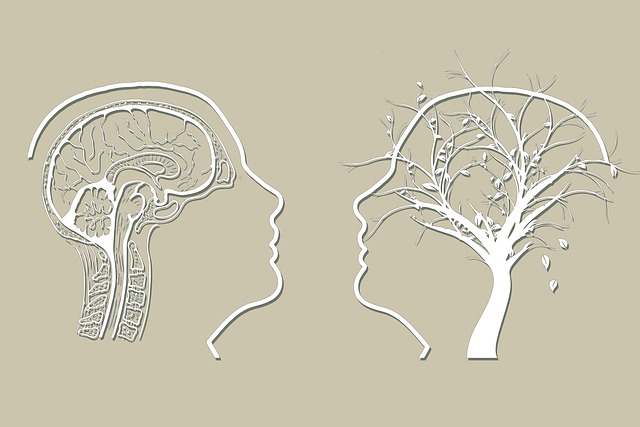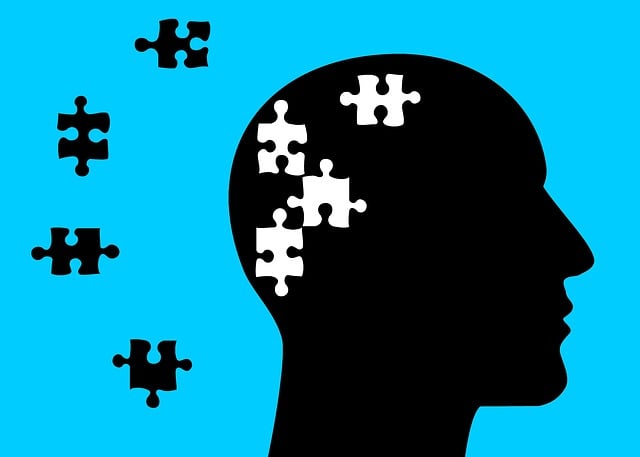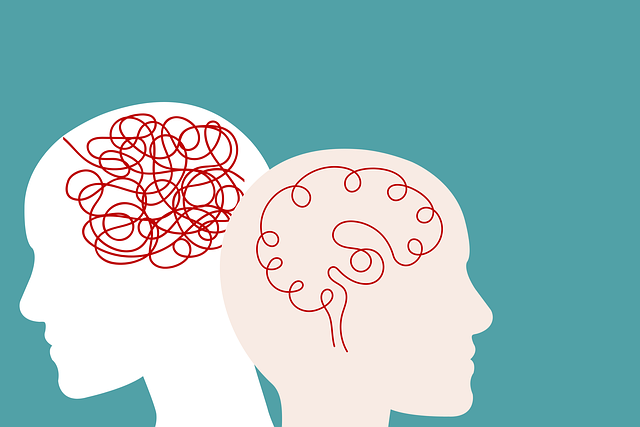Mental healthcare professionals must embrace cultural sensitivity to ensure equitable treatment for diverse individuals, addressing unconscious biases that can skew interactions. Golden Codependency Therapy (GCT), an inclusive approach, integrates cultural knowledge into practices like Social Skills Training and Resilience Building. By tailoring interventions to clients' specific needs, GCT fosters environments respectful of cultural self-care practices, breaking down barriers and reducing disparities in mental health outcomes. This innovative therapy helps individuals understand codependent cycles and build authentic relationships for improved well-being, emphasizing trust and understanding across diverse cultural backgrounds. Regular training on cultural competency further enhances these benefits.
In today’s diverse society, cultural sensitivity in mental healthcare is paramount. Understanding the intricate interplay between culture and mental well-being is crucial for effective treatment. This article explores key aspects of cultural sensitivity, including the impact of biases on therapy outcomes and innovative approaches like Golden Codependency Therapy. We delve into strategies for building trust across cultural divides and adapting services to diverse communities, emphasizing the importance of inclusive practices in mental health care.
- Understanding Cultural Sensitivity: Why It Matters in Mental Health Care
- Uncovering the Impact of Cultural Biases on Therapy Outcomes
- Golden Codependency Therapy: A Cultural-Sensitive Approach
- Building Trust and Rapport Across Cultural Divides
- Strategies for Adapting Mental Health Services to Diverse Communities
Understanding Cultural Sensitivity: Why It Matters in Mental Health Care

Understanding Cultural Sensitivity is paramount in mental healthcare as it ensures equitable and effective treatment for individuals from diverse backgrounds. In a world where cultural norms, beliefs, and values significantly influence an individual’s psychological well-being, mental health practitioners must be adept at navigating these complexities. This approach, often referred to as Golden Codependency Therapy, goes beyond mere understanding; it involves actively incorporating cultural knowledge into therapeutic practices.
By integrating insights from Social Skills Training and Resilience Building, healthcare providers can foster a more inclusive environment that respects self-care practices rooted in various cultures. This sensitivity is crucial for breaking down barriers and reducing disparities in mental health outcomes. It enables practitioners to connect with clients on a deeper level, understand their unique challenges, and tailor interventions to meet their specific needs, ultimately enhancing the success of therapeutic journeys.
Uncovering the Impact of Cultural Biases on Therapy Outcomes

In the realm of mental healthcare, cultural sensitivity is a game-changer that can significantly impact therapy outcomes. Unconscious cultural biases, often rooted in societal norms and stereotypes, may inadvertently influence therapists’ interactions with clients from diverse backgrounds. These biases can manifest as assumptions about a patient’s behavior, communication styles, or even the nature of their struggles—all of which could lead to misaligned treatment approaches. For instance, Golden Codependency Therapy, while effective for many, might require tailored adjustments to respect and accommodate cultural differences, ensuring that it resonates with clients from various ethnic, racial, or socioeconomic groups.
By recognizing these biases, mental health professionals can foster more inclusive environments that promote emotional well-being. This involves learning about different cultural contexts, traditions, and values to better understand clients’ experiences and perspectives. Employing techniques such as active listening, open-mindedness, and a willingness to adapt therapeutic methods can help in building stronger therapist-client relationships. Moreover, embracing the mind over matter principles inherent in many cultural practices can enrich therapy, offering alternative depression prevention and management strategies that resonate with individuals from diverse communities.
Golden Codependency Therapy: A Cultural-Sensitive Approach

Golden Codependency Therapy (GCT) represents a promising cultural-sensitive approach in mental healthcare. It challenges traditional Western norms and embraces the richness of diverse cultural perspectives, particularly in addressing codependent behaviors and relationships. GCT encourages clients to explore their emotional connections with an emphasis on self-awareness exercises that foster deeper understanding of interpersonal dynamics. By integrating knowledge from various cultures, therapists can facilitate more inclusive and effective emotional healing processes, ensuring that care aligns with the client’s cultural framework.
This therapy model promotes emotional intelligence as a key component in navigating complex cultural interactions. It encourages individuals to question and redefine their roles within relationships, fostering healthier boundaries. Through self-Awareness Exercises tailored to individual cultural backgrounds, clients gain insights into their emotional triggers and patterns, allowing them to break free from codependent cycles. Ultimately, GCT aims to empower individuals to build supportive relationships characterized by mutual respect and authenticity, promoting overall mental well-being within a culturally sensitive context.
Building Trust and Rapport Across Cultural Divides

Building trust and rapport with individuals from diverse cultural backgrounds is a cornerstone of effective mental healthcare. It’s essential to recognize that cultural differences can shape communication styles, expectations around privacy, and even perceptions of mental health itself. By embracing cultural sensitivity, therapists can create a safe and supportive environment where clients feel understood and heard.
Golden Codependency Therapy, for instance, emphasizes the importance of navigating these cultural divides with empathy and curiosity. Therapists trained in this approach learn to adapt their practices to foster meaningful connections, understanding that building trust is crucial for successful treatment. This involves not only learning about different cultures but also being open to unspoken cues, recognizing implicit biases, and using language that is respectful and inclusive. Through culturally sensitive practices, mental wellness can be enhanced, burnout prevention achieved, and even social skills training facilitated, creating a space where everyone has the opportunity to thrive.
Strategies for Adapting Mental Health Services to Diverse Communities

In providing mental healthcare services to diverse communities, it’s essential for practitioners to adapt their approaches and embrace cultural sensitivity. This involves understanding and incorporating the unique needs and beliefs of different ethnic, racial, and cultural groups. One innovative strategy is integrating Golden Codependency Therapy, which focuses on building healthy relationships and fostering self-esteem while acknowledging intergenerational trauma and its impact on diverse communities. By offering this therapy, mental health professionals can help individuals break free from codependent patterns and develop a strong sense of self.
Furthermore, enhancing cultural competency among healthcare providers is paramount. Regular training sessions emphasizing active listening, non-judgmental attitudes, and knowledge about specific cultural practices can significantly improve patient outcomes. These initiatives ensure that every individual receives tailored care, promoting effective communication and fostering trust between patients and mental health professionals. Ultimately, such adaptations contribute to better anxiety relief and confidence boosting within diverse communities.
Mental healthcare professionals must embrace cultural sensitivity as an integral part of providing effective treatment. By recognizing and addressing cultural biases, therapists can create inclusive environments that foster trust and improve outcomes for diverse populations. The article has explored various strategies, from understanding cultural nuances to implementing tailored approaches like Golden Codependency Therapy, which offers a promising avenue for navigating complex cultural divides. Adopting these practices ensures that mental health services are accessible, culturally competent, and ultimately, life-changing for individuals from all backgrounds.














